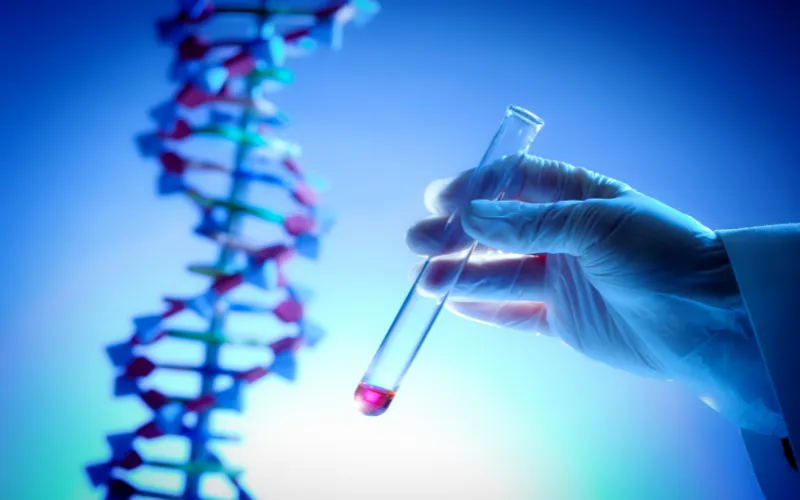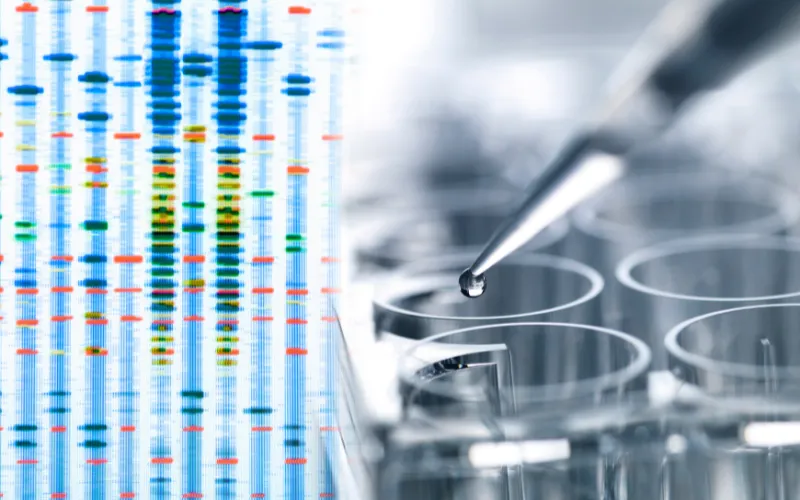
Wouldn’t it be empowering to know exactly how your body responds to the food you eat, down to the genetic level? What if the key to revealing better health, managing chronic conditions, or even preventing conditions was hidden in your DNA? Nutrigenomic testing gives you this fascinating possibility, combining the worlds of genetics and nutrition to create personalized dietary recommendations tailored just for you.
In a world where one-size-fits-all diets often fall short, nutrigenomic testing methods can change this. By analyzing your genetic makeup, these methods reveal how your body processes nutrients, reacts to certain foods, and even predispositions to health issues like diabetes or cardiovascular conditions. Let’s discover the techniques that make this possible and explore how they could transform the way you approach nutrition.
Key Takeaways
Nutrigenomic testing combines genetics and nutrition to create personalized dietary plans, focusing on how your body processes specific nutrients and reacts to foods.
Key methods involve genetic analysis through non-invasive sample collection (cheek swab or saliva), laboratory sequencing, data interpretation, and tailored recommendations.
Personalized nutrition improves diet adherence and results, with studies showing individuals are more likely to stick to diet plans designed around their unique genetic profiles.
Nutrigenomic testing helps prevent and manage chronic conditions like diabetes or cardiovascular issues by identifying genetic predispositions and tailoring proactive nutritional strategies.
Professional guidance is essential to interpret results and ensure actionable accurately, science-backed dietary changes are integrated holistically into health routines.
Considerations for choosing a testing method include reliability, professional support, data security, and actionable insights, ensuring the best fit for individual health needs.
Table of Contents
What Is Nutrigenomic Testing and Why It Matters For Optimizing Health
Defining Nutrigenomics for Personalized Nutrition
Nutrigenomics explores how your genes interact with the food you eat, with DNA serving as the blueprint and nutrients as the building blocks. It studies how nutrients impact gene expression, while nutrigenetics examines how your genes influence your response to those nutrients. Together, they form the basis of genetic nutrition testing, offering personalized health insights.
This testing helps identify underlying health imbalances by looking at DNA. For example, instead of generalized advice, it can pinpoint specific gene variations like MTHFR, which affect how your body processes nutrients like folate. This allows for targeted nutrition strategies, saving time and money. Nutritional genomics tests eliminate guesswork by providing personalized, data-driven dietary interventions based on genetics. This approach helps you eat smarter, guided by science.
The Growing Demand for DNA-Based Nutrition Testing
Modern life brings health challenges like processed foods and high stress, leading many to try nutrigenomic testing for more innovative health management. With over 60% of U.S. adults facing diet-related issues like obesity and diabetes*, understanding genetics can help prevent or manage these conditions. Personalized health solutions are in high demand, with 85% of people seeking tailored options**—something nutrigenomic testing offers effectively. Thanks to scientific advancements, this once-exclusive tool is now affordable and accessible, empowering individuals to align their diet with their genetic makeup.

How Nutrigenomic Testing Methods Work
To understand nutrigenomics testing methods, let’s take a look at how each piece of the process fits together, step by step:
Step-by-Step Process of Genetic Nutrition Testing
Sample Collection: A cheek swab or saliva sample can quickly reveal genetic information without needles or stress—just a simple, 5–10 minute process.
Laboratory Analysis: Your DNA is analyzed, targeting 45–100 genes linked to nutrition. These genes reveal how your body processes nutrients like vitamins and caffeine. Labs examine SNPs, minor genetic variations, to understand nutrient metabolism. Results take 7–15 business days.
Interpreting Genetic Data Using Research Databases: Once sequenced, your genetic data gets compared to a treasure trove of research-packed databases. This is where your unique DNA profile meets science, uncovering how your body responds to nutrients.
Personalized Recommendations: Your results get turned into a tailor-made nutrition game plan. A genomics practitioner takes your genetic predisposition to food intolerances to craft a strategy focused on your specific health needs. Maybe you’re getting a green light for more leafy greens or realizing why you and dairy never got along. You’ll receive this detailed feedback about 1–2 weeks after the lab wraps up.
Step | Details | Timeframe |
|---|---|---|
Sample Collection | Non-invasive cheek swab or saliva sample | 5–10 minutes |
Laboratory Analysis | Sequencing of 45–100 genes for SNPs | 7–15 business days |
Data Interpretation | Comparison with research databases | Included in lab time |
Recommendations | Diet, exercise, and supplement plans tailored to genetic profile | 1–2 weeks post-results |
Key Genes Analyzed in Nutrigenomic Testing
If genes were characters in a play, a few are always the stars of nutrigenomics. Here are the key ones your test might focus on:
FTO Gene: Think of this as your metabolism maestro—this gene has a big say in how your body handles weight. Variants here may explain why some people store fat more readily.
MTHFR Gene: This gene acts as a folate gatekeeper. Individuals may carry genetic variants, such as those in the MTHFR gene, that can reduce the efficiency of folate metabolism, impacting nutrient absorption and health.
CYP1A2 Gene: Are you the friend who can’t touch coffee after 4 PM? It might be thanks to this gene, which determines how fast (or slow) your body metabolizes caffeine.
APOA2 Gene: Think of this one as your cholesterol whisperer. It influences how you handle saturated fats, and specific variants can elevate cholesterol risks.
From Data to Diet: How Genetic Results Drive Personalized Nutrition
What happens after your test? Nutrition professionals step in to turn data into action. By combining genetic insights with lifestyle factors like sleep, stress management, and gut health, a practitioner creates a nutrition plan that works for you, not against you. For instance, if you’ve got an MTHFR variant, they might recommend upping your vitamin C or folate intake. And if you’re struggling with hypertension? Your plan could call for cutting back on sodium.

Health Benefits of Nutrigenomic Testing Methods
Nutrigenomic testing explores your DNA to help optimize your diet and prevent chronic health issues, offering a personalized approach to improving your well-being.
Personalized Diet Plans Based on Genetic Blueprint
Nutrigenomic testing tailors diets to your unique genetic makeup, analyzing how your body processes nutrients like carbs, fats, proteins, and vitamins. It can reveal which diet style suits you best, such as a Mediterranean or low-carb plan. Research shows personalized diets can boost weight loss success significantly. For example, if testing reveals a sensitivity to saturated fats, a vegetarian could focus on plant-based fats like avocado or olive oil for better results. These customized plans are designed to deliver long-term success.
Preventing Chronic Conditions Through Early Detection
Genetic nutrition testing helps identify your body’s weaknesses, aiding in the prevention of issues like heart disease or Type 2 diabetes. By understanding genetic risks, such as glucose imbalances, you can make early dietary changes—like reducing sugary drinks or choosing whole grains—to avoid future health problems. Nutrigenomics uses this information to create proactive food and lifestyle plans to address risks early.
Improved Dietary Compliance with Gene-Based Insights
Sticking to a generic health plan can be tough, but when it’s tailored to your genetics, it becomes more personal and motivating[1]. Knowing how your genes, like CYP1A2, affect things like caffeine tolerance or gut health makes the plan feel scientific and empowering. Nutrigenomic testing turns these insights into tools, helping you take control of your health and stick to meaningful changes.
Limitations and Ethical Considerations of Nutrigenomic Testing
Even though nutrigenomic testing holds significant promise, it comes with its own set of hurdles. From gaps in scientific knowledge to thorny ethical considerations, there’s a lot to scrutinize before diving headfirst.
Scientific Gaps and Limitations in Genetic Testing
Genetics doesn’t tell the whole story. These tests analyze only a fraction of your genome, leaving untapped millions of variants that might matter. Meanwhile, environmental factors—diet, stress, and your gut health—play a significant role in your overall health, yet they often get sidelined in genetic nutrition testing. For example, the microbiome (your gut bacteria) is a major player in how your body responds to nutrients, but it’s rarely factored into results.
And then there’s the question of scientific backing. While some recommendations are rock-solid, others live in the “needs more research” category. Without adequate evidence, you risk basing critical dietary choices on shaky grounds—a cautionary tale the science world keeps trying to fix.
Risks of Misinterpreting At-Home Genetic Test Kits
Direct-to-consumer nutrigenomic kits may be convenient, but they come with privacy risks, as companies might misuse or sell your genetic data. Misinterpreting results without professional guidance can lead to drastic, potentially harmful dietary changes. To stay safe, choose reputable labs with secure data policies and professional support for interpreting results.
Biggest Mistake: Overreliance on Testing Alone
It’s tempting to think a test will give you all the answers. But let’s be real, nutritional genomics tests are just one piece of the health puzzle. They can reveal your genetic tendencies, sure, but they won’t single-handedly determine your health outcomes. Lifestyle factors like your exercise routine, sleep patterns, and what’s sitting in your fridge matter just as much, if not more.
Consider it this way: your DNA offers a roadmap, but it’s up to you to follow the directions wisely. Relying too heavily on genetic results without considering the broader context (diet, workout habits, stress levels) can lead to tunnel vision.

Choosing the Right Nutrigenomic Testing Methods and Providers
With the rise of DNA testing in nutrition, selecting a reliable provider is crucial to ensure accurate, actionable results that align with your health objectives.
Choosing the Right Test
It’s essential to select a genetic nutrition testing provider that ensures the results are both reliable and valid. Here are the key factors to evaluate:
Scientific Validity: Ensure the test is backed by peer-reviewed research for reliability. Look for providers that reference studies, such as genome-wide association studies (GWAS), to validate their genetic markers.
Comprehensive Gene Analysis: Opt for tests analyzing 45+ genes for broader insights; some analyze over 100. More genes can provide a fuller picture of nutrient metabolism, such as how your body processes folate (MTHFR gene) or caffeine (CYP1A2 gene).
Professional Guidance: Choose providers that also provide professional guidance to make sense of the results. A certified dietitian or genomics specialist can translate complex data into practical dietary changes, preventing misinterpretation.
Data Security: Prioritize companies with strong data security and privacy policies. Genetic data is sensitive, and reputable providers should guarantee no third-party sharing without explicit consent.
Actionable Reports: Look for comprehensive yet practical nutrigenomic reports with actionable recommendations. The best nutritional genomics tests provide clear, easy-to-follow advice, like swapping saturated fats for plant-based options if you have an APOA2 gene variant.
Practical Applications of Nutrigenomic Testing in Daily Nutrition
Tailoring Meal Plans Based on Genetic Markers
One-size-fits-all diets don’t work because your DNA reveals how your body interacts with food. Genetics can indicate the best diet type, such as a Mediterranean diet rich in omega-3s or a low-carb diet to manage blood sugar. Utilizing clinical applications for nutrigenomics can help design nutritional plans tailored to an individual’s genetic profile.
Optimizing Nutrient Absorption via DNA Insights
Some people thrive on leafy greens, while others don’t—and genes like MTHFR might explain why. If this gene has issues, absorbing folate becomes difficult, so adding spinach, kale, or folate supplements can help. Combining genetic testing with bloodwork helps create tailored diets or supplement plans, turning an ordinary salad into a nutrient-packed powerhouse.
Proactively Managing Health Risks Through Nutrition
Genetic nutrition testing acts as a tool to detect risks for chronic conditions early. For example, finding a gene variant linked to high triglycerides can guide dietary changes, like using heart-healthy fats. Beyond heart health, testing helps identify risks for conditions like type 2 diabetes or high cholesterol, empowering patients to adopt healthier habits, such as reducing sugar or increasing fiber. This approach provides straightforward, actionable steps to improve their health based on their DNA.
Conclusion: Using Nutrigenomic Testing Methods to Build a Smarter Diet
Wouldn’t it be incredible to know precisely how your body responds to food, right down to your DNA? Nutrigenomic testing methods make this a reality, using DNA testing nutrition to reveal how your genes affect nutrient metabolism, food sensitivities, and risks for conditions like diabetes or heart disease. Unlike generic diets, genetic nutrition testing offers tailored, science-backed recommendations that take the guesswork out of eating well, helping you optimize your health with precision.
To make the most of nutritional genomics tests, expert interpretation is key—misreading results or overlooking lifestyle factors can limit their value. That’s why our Integrative Genomics Specialist Program equips you with the skills to decode genetic data accurately, turning insights into actionable nutrition plans. With testing costs dropping and exciting advancements like epigenetics on the way, nutrigenomic testing methods are transforming how we approach health.
Frequently Asked Questions
What is nutrigenomic testing and how does it work?
Nutrigenomic testing analyzes your DNA to provide personalized dietary recommendations based on your genetic makeup. It helps understand how your body processes nutrients and identifies predispositions to potential health issues, enabling you to tailor your nutrition to achieve better health outcomes.
What are nutrigenomic testing methods?
Nutrigenomic testing methods include genotyping, sequencing, and SNP analysis to examine nutrition-related genes. These methods identify how your body metabolizes fats, carbs, vitamins, and other nutrients. At Elite Gene Labs, we focus on clinically relevant genes such as MTHFR, FTO, and CYP1A2 to deliver precise, actionable health insights.
What are examples of nutrigenomic testing in action?
Examples include identifying slow caffeine metabolizers through the CYP1A2 gene or understanding folate needs based on MTHFR gene variations. These findings guide dietary choices like reducing caffeine or increasing leafy greens for better health outcomes.
How much does nutrigenomic testing cost at Elite Gene Labs?
Our nutrigenomic testing packages typically range from $199 to $499, depending on the depth of analysis and support level. Each plan includes a full DNA report and personalized nutrition recommendations.
What are the benefits of nutrigenomic testing?
Personalized diet and supplement guidance
Early detection of nutrient deficiencies or sensitivities
Improved weight management and energy levels
Better prevention of chronic diseases
A data-driven approach to functional nutrition
Elite Gene Labs offers expert-backed testing to help you achieve these benefits.
Are there any risks or limitations to nutrigenomic testing?
Nutrigenomic testing analyzes only a small portion of your genome and cannot predict exact health outcomes. It also requires professional guidance for result interpretation. Privacy concerns are another factor to consider.
How is a nutrigenomic test performed?
The test typically involves collecting a DNA sample using a cheek swab or saliva kit. This sample is sent to a lab for analysis, where your nutrition-related genes are examined, and personalized diet recommendations are created.
What should I look for in a nutrigenomic testing provider?
Choose providers with scientifically backed tests, professional support for result interpretation, and strict data privacy policies. Ensure the test aligns with your health goals and offers actionable insights.
References:
- *National Center for Health Statistics. (2024). Prevalence of obesity in adults age 20 and older, by sex and age: United States, August 2021–August 2023. National Health and Nutrition Examination Survey. https://www.cdc.gov/nchs/data/databriefs/db508.pdf
- *Centers for Disease Control and Prevention. (2024). National Diabetes Statistics Report. https://www.cdc.gov/diabetes/data/statistics-report/index.html
**CVS Health. (2022). 2022 Health Care Insights Study. https://www.cvshealth.com/news-and-insights/2022-health-care-insights-study
- [1] Celis-Morales, C., Livingstone, K. M., Marsaux, C. F. M., et al. (2016). Effect of personalized nutrition on health-related behaviour change: evidence from the Food4Me European randomized controlled trial. The American Journal of Clinical Nutrition, 104(6), 1490–1500. https://doi.org/10.3945/ajcn.115.121731
- [1] Celis-Morales, C., Livingstone, K. M., Marsaux, C. F. M., et al. (2016). Design and baseline characteristics of the Food4Me study: a web-based randomised controlled trial of personalised nutrition in seven European countries. International Journal of Epidemiology, 45(6), 2041–2054. https://doi.org/10.1093/ije/dyw233

